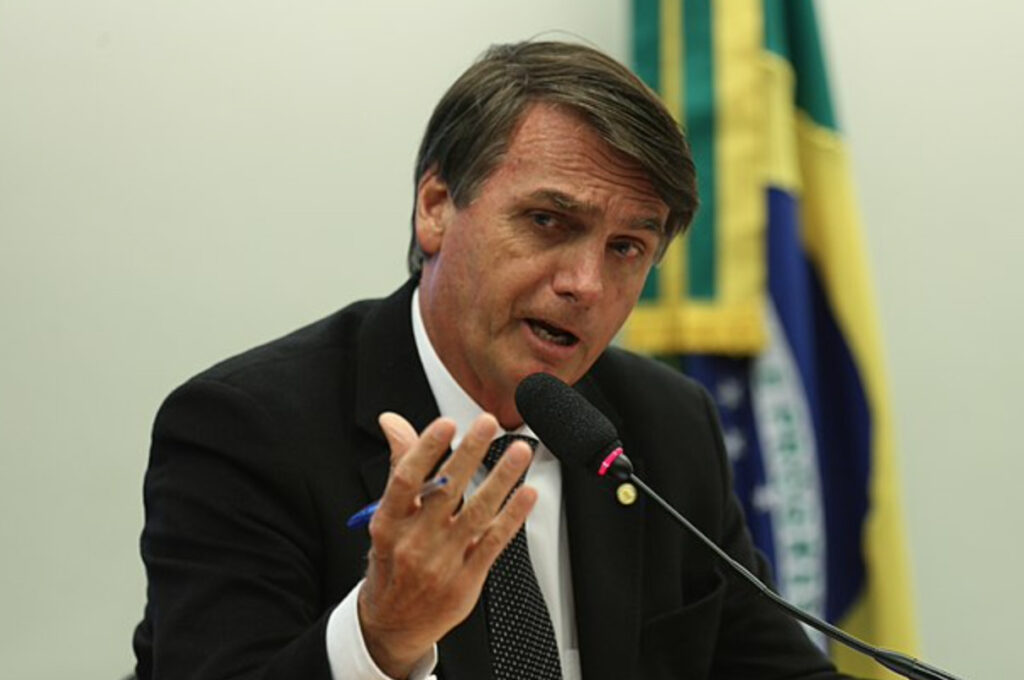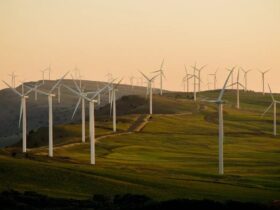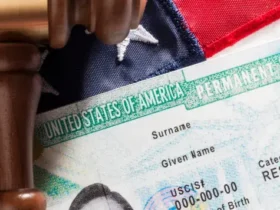LOS ANGELES — As COP26 approaches, state climate commitments are facing intense scrutiny, particularly those of the world’s top emitters. Brazil, which in 2018 contributed 2.1% of global emissions, and its current commitments are a source of concern for many in the international community. Independent researchers have categorized Brazil’s nationally determined contribution (NDC) pledge in the Paris Agreement as highly insufficient. The Paris Climate Agreement established a goal of keeping global temperatures from rising above 2 C, but Brazil’s NDCs put them on a path of 4 C rise. The current climate commitments are even more concerning in the context of President Jair Bolsonaro’s climate denial and unreliable policies.
Besides its emissions, Brazil’s climate action (or lack thereof) is of international importance due to the unique natural resource harbored within its borders. The Amazon rainforest, the largest of its kind in the world, stretches for 2.6 million square miles across 8 countries in South America. The majority of the Amazon, however, is in Brazil, granting the country jurisdiction over much of the 100 billion metric tons of carbon stored in the forest. During deforestation, these carbon stores escape into the atmosphere, exacerbating the greenhouse effect causing climate change and eliminating the oxygenation benefits provided by the rainforest.
The situation of the forest gives Brazil a great responsibility over its preservation. Brazil’s policies toward the Amazon — which are subject to volatility during changes in leadership and attitudes regarding conservation and protection — have implications beyond climate change: Indigenous rights and land, biodiversity conservation, medicinal innovation and agricultural sectors. With so much at stake, Brazil’s inconsistent and inflammatory environmental policies in the Amazon inflict dire repercussions regionally and globally.
Bolsonaro and Business in the Amazon
President Bolsonaro took office in 2018 with clear intentions of opening up the Amazon to development. He repeatedly asserted Brazil’s ownership of the Amazon and denied any claims to common regional heritage over the Amazonian ecosystem. In 2019, Bolsonaro criticized European countries for condemning his attitude toward the Amazon and said, “the Amazon is Brazil’s, not yours”.
With this mindset, Bolsonaro opened the Amazon to business and exploited natural resources, including in Indigenous land. This attitude proved to be extremely destructive, as deforestation hit a high point last year.
Deforestation of the Amazon has been extremely profitable for private corporations, especially the agricultural and mining sectors that have capitalized on dealings with Brazilian politicians. The drive for deforestation has been pushed by large financial, agricultural and mining corporations such as BlackRock investment, JBS and Cargill agriculture. The lobbying and destruction has been abetted by Brazilian politicians like Wilson Lima, the conservative governor of one of the regions that makes up a lot of Brazil’s Amazon. The mutually beneficial relationship established between corporations and politicians further reduces Bolsonaro’s incentive to revise his destructive development policies without sufficient international pressure.
Bolsonaro is only willing to undertake conservation efforts that threaten the booming deforestation business if the international community bears the costs. Bolsonaro has asked the international community for billions of dollars to help in efforts to stop deforestation. President Biden called for international funding of conservation and pledged US contribution.
However, shifting the financial burden of conservation to the international community obscures existing funds that the Brazilian government neglects to distribute. Different international leaders like those of the G7 remain willing to contribute to the Amazon fund, which was created by the international deforestation agreement, REDD+, in order to stop deforestation. Bolsonaro already has access to funds, including from countries that have already followed through on their financial pledges to the Amazon fund, but fails to divert them to conservation efforts, as seen in his budget plan that had the lowest level of funding for conservation in decades.
Indigenous Voices and Better Investment Choices
Furthermore, money alone may not be enough to stop deforestation, especially if it falls in the wrong hands. Environmental activists and Indigenous groups argue that giving Bolsonaro the money does not ensure that the Amazon will be protected, as the Brazilian president’s past actions have demonstrated that his policies can easily and rapidly change. Domestic climate activists and Indigenous advocates warn that money directed toward Bolsonaro and the Brazilian government may not reduce deforestation and suggest instead that international funds would be better allocated in the hands of local and Indigenous communities.
Though Bolsonaro promised at the Climate Leaders Summit that happened in April this year to present more ambitious commitments at Glasgow, Indigenous communities have expressed concern. Recently, Brazil has seen protests against an erosion of Indigenous protections, such as a policy which would open Indigenous lands in the Amazon to mining and a court decision backed by the farming industry that endangered Indigenous land claims.
Indigenous groups have been fighting for their land rights and protection of their lands in the Amazon, which has been essential to protecting the rainforest from destruction. The Brazilian constitution established Indigenous land claims in 1988, but these rights have come up again recently because of challenges from the Brazilian congress about opening these lands to extractive activities. This has resulted in a court case where the claims to land are challenged, but this case is currently at a stand still. There has been a push to get rid of the land rights because there are resources that are protected by Indigenous lands, and mining companies and timber companies want to tap into these. The Indigenous people of the Amazon have primarily been protecting the Amazon through their claims to the land, which do not allow for mining, etc, along with other efforts like the Guajajara Guardians, which are Indigenous militias who protect the Amazon from illegal loggers and others who are contributing to the destruction.
While Indigenous groups have been successful in protecting their land, they remain vulnerable to threats from the government and the Bolsonaro administration. Being Indigenous in Brazil already endangers these groups, and their efforts to protect the Amazon put them at an even further risk, as being an environmental activist can be life threatening in Latin America, especially when advocates counter economic policies. Over 200 environmental activists have been killed annually over the past few years, and over two-thirds of these deaths have been in Latin America, primarily in Mexico, Colombia, Honduras and Brazil. Indigenous lives comprise a disproportionate amount of reported deaths. These murders are rarely tried in court or brought to justice.
Indigenous rights and protection for the Amazon then go hand in hand, but both have been neglected in the recent past and during Bolsonaro’s time in office thus far. To get Brazil truly on board then, there has to be commitments to Indigenous rights along with the goals promoted at the Climate Leaders Summit, but counting on Bolsonaro to preserve one of the world’s most essential environments might not be reliable. The implementation process for the commitments for COP26 then should consider empowering Indigenous groups to better ensure there will be more robust protection of the Amazon and human rights.
Brazil and COP26
Former U.S. President Donald Trump, who demonstrated similar disregard for climate concerns and issued similarly destructive climate policies, did not apply pressure on Brazil. This meant that Bolsonaro could continue his anti-environmental rhetoric and commodification of the Amazon without serious pressure from the United States.
This year, however, Bolsonaro has taken a turn on his original stance. Part of this change in direction is due to the change in US administration, with the election of President Biden, who has pressured Bolsonaro to take action. Biden, along with other states at the Climate Leaders Summit, leveraged financial incentives to get Bolsonaro on board with more ambitious goals for Brazil, including carbon neutrality by 2050 and net-zero deforestation by 2030.
Some of these goals did translate into Brazil’s commitments at COP so far, specifically the commitment to deforestation. During the first few days of COP, leaders agreed to a deal about ending deforestation by 2030, Brazil was among them despite Bolsonaro not attending the conference. This is promising because they are following up on the commitments made in April. The agreement involves billions of dollars in funds to be used in assisting developing countries address issues like wildfires and to support Indigenous communities. Brazil however was not a part of the pledge to support Indigenous and local communities in recognizing their role in protecting land.
The deforestation commitment and lack of participation in the pledge to support Indigenous communities were moves that could be expected based on the Bolsonaro administration’s actions this year so far. The deforestation commitment is unreliable because similar commitments have been made in the past but not followed through, but having the Biden administration committed to it and wanting to be a leader for the deforestation agreement, this might change the outcome to being more successful. The failure to join the commitment for supporting Indigenous people is disappointing, but this was what Indigenous communities have been warning about, the Bolsonaro administration refuses to recognize the importance of Indigenous communities and neglects to empower them or protect their rights.
The actions of Brazil at COP so far are surprising considering the prioritization of the business of deforestation that has been so common for Bolsonaro, but unsurprising in the overlooking of Indigenous voices. Indigenous activists have been saying that the government cannot be relied upon when it comes to issues of the Amazon, and this holds true. Though the Brazilian government has agreed to ending deforestation, it will be hard to verify. The unwillingness to tangibly act on these issues this far into Bolsonaro’s term indicates that commitments are probably not going to be taken seriously.







